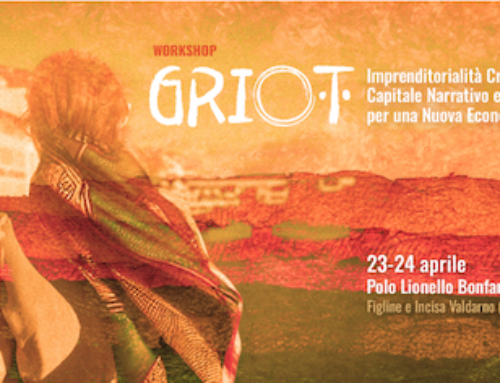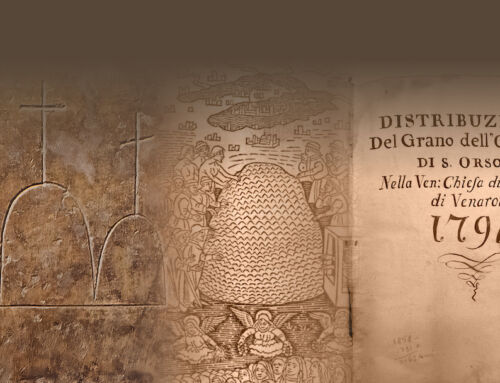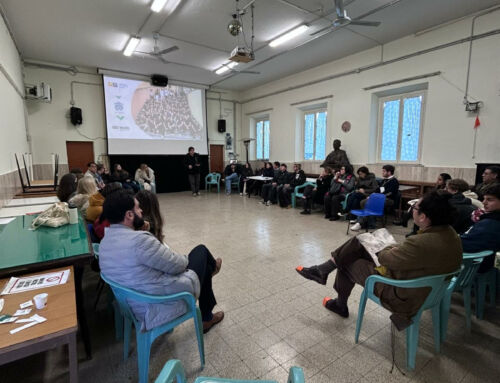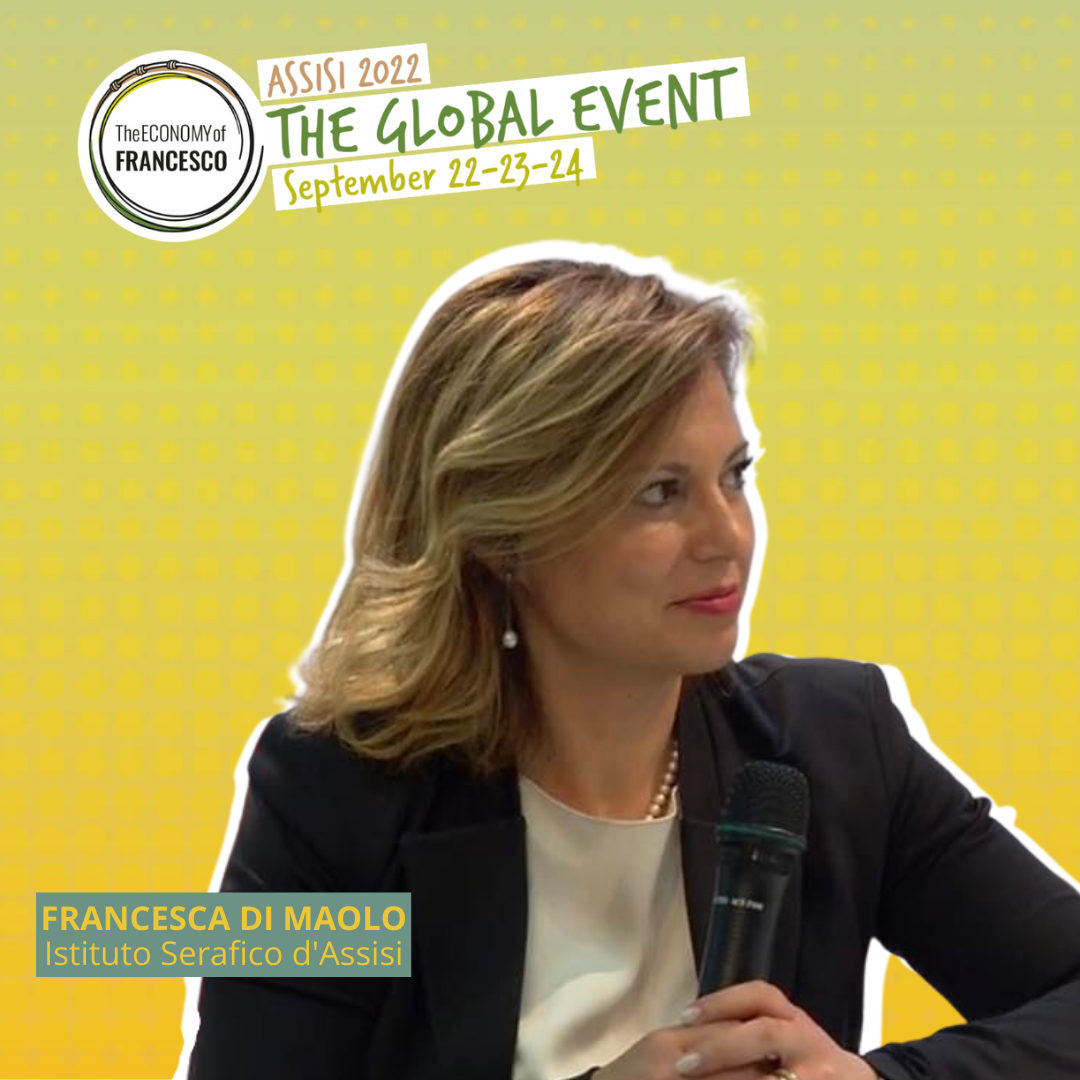
Di Maolo: Talking about inclusion means being aware that someone is kept outside
Aware that we need an economy that leaves no one behind, we know a fundamental aspect is to think with and for those who have disabilities. This is why we interviewed Francesca Di Maolo, director of Istituto Serafico di Assisi, an institute that for 150 years has been working for the education, healthcare and inclusion of young people with disabilities.
In addition to being part of the organizing committee of The Economy of Francesco (EoF), Istituto Serafico is preparing to give an artistic presentation during the global EoF event, to be held in Assisi from September 22-24. The Performance represents a symbol and message of inclusion in which people with disabilities become the protagonists.
But we wanted to start with questions that allow us to understand the challenges, learnings and motivations of working for this cause. The interviewers are two girls who are dedicated to overcoming the challenge of inclusion from different aspects: Gabriela Matus (Guatemala) and Ana Argento (Argentina). Both are young women committed to the work carried out by the CO2 of Inequalities thematic village.
Gabriela – During the press conference on The Economy of Francesco in 2020 you delivered a powerful message saying: “We live in our own flesh, systematic inequalities in health that are unfair and iniquitous because they are not determined by biological factors, but by economic policies that rule out the lives of the most fragile.” We know truly little about the hard work and the great achievement of the Seraphic Institute. But what it takes to raise awareness and visibility of the disabled is unmistakable. For you, Francesca, what challenges to including people with disabilities in today’s economy do you face, and how can be possible to start making changes?
Francesca – You raise an important topic, that of inclusion. Talking about inclusion means being aware that someone is kept outside, that someone has been excluded. And it is important to be aware of this because when we often talk about the most fragile, I think of our children, but I think in general of the most vulnerable people. Sometimes we talk about the last ones, but this does not reflect the condition of the most vulnerable. If you are last, it means that you have been allowed to participate in some way in life, and to contribute with all your resources. But this does not happen for the most vulnerable, otherwise, we should not talk about bringing someone back in.
I believe there are two main elements to consider in order to address the issue of inclusion seriously within an economic framework. These elements are equity and justice.
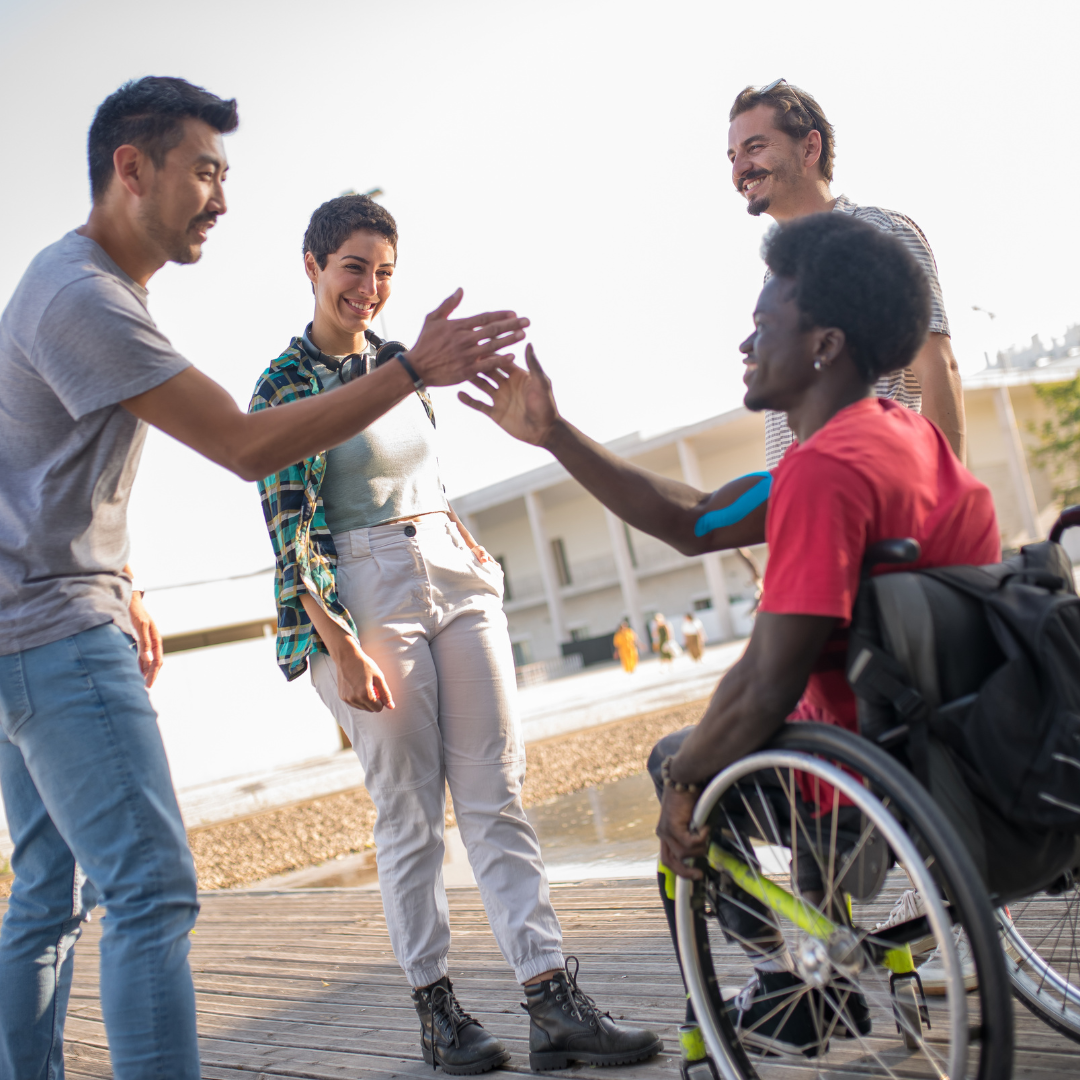
Equity is to bring together and to be aware, as far as others are concerned, that we are not required to give the same things to all, but we must respond to the needs of people to be able to bring them back inside, to give them the opportunity to compete in some way, to participate to achieve a full life. The other element is justice. It is important, precisely starting from economic systems, to be aware that systems must not generate waste to which corrective measures are then provided to respond. We should assure everyone the inviolable Human rights, the fundamental Human rights. These are the right to health for all, a job for all, a home for all and education for all. If we have a system that works in such a way as to always respond in this sense, we may talk about inclusion. We would have truly brought back those who are outside. It is true that many times we respond to what is lacking through charity and extended solidarity. But we should never forget, what Pope Benedict XVI told us in Caritas in Veritate, that justice and charity can never be separated. Before we are personally ready to give something of our own to the other, before giving something that is missing, we must first acknowledge what is his right, what belongs to him for a matter of justice, because Human Dignity is the same for all, and because justice is the foundation of all our democracies. It is the substance of democracy that demands that no one be left out.
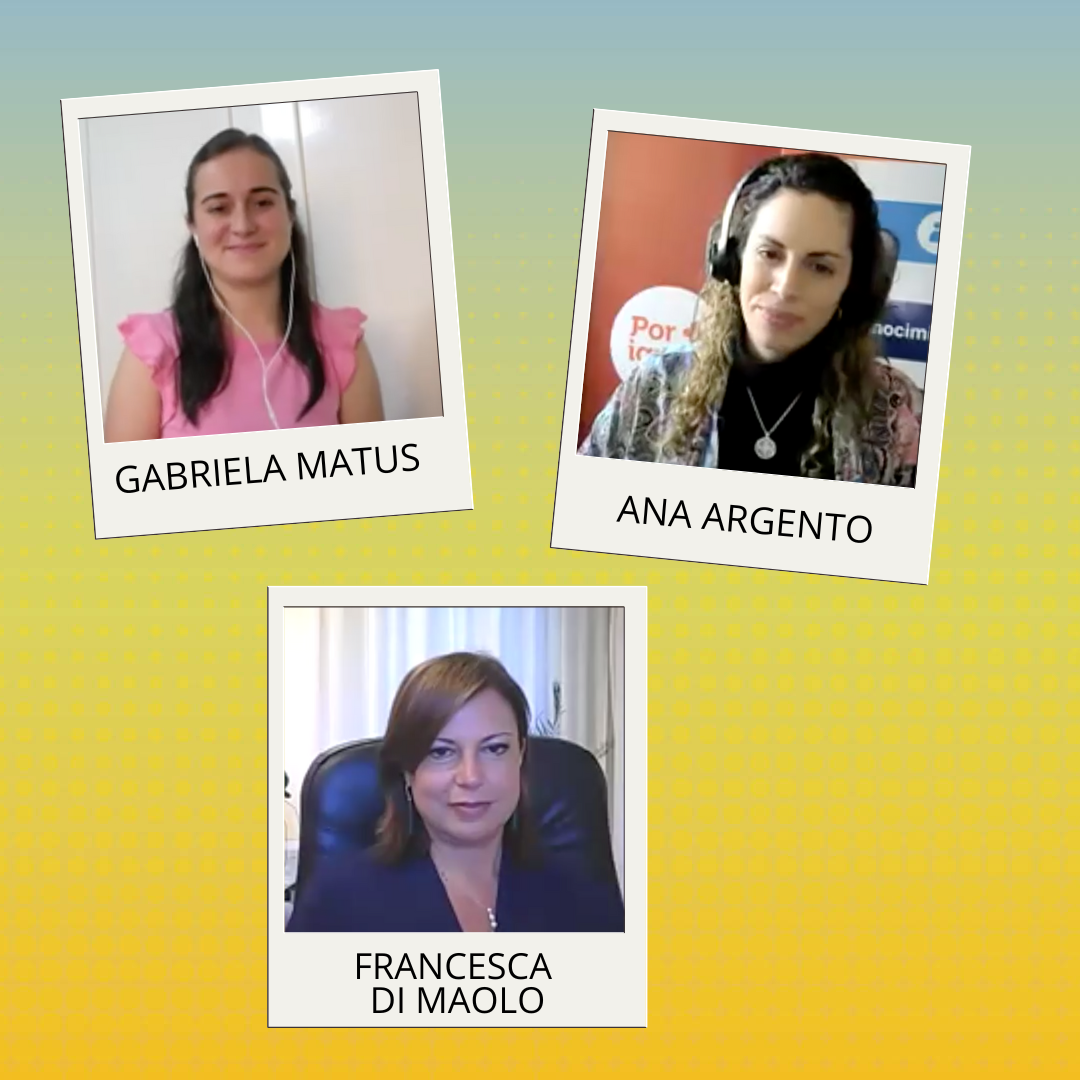
Ana – Pope Francis said that we are living today in this ‘throwaway’ culture and society in many ways. If we consider these words from the point of view of the persons, the “waste” can be all those who experience exclusion for their entire life until their old age, or those who have some disability. But despite the discrimination and prejudice that society can impose, we understand and recognize that all people are worthy and add value. In this sense, could you tell us what we can learn from people with disabilities, and how we can share with other people the value they bring to our society?
Francesca – Regarding people with disabilities and limitations, I believe the value they add, the constant lesson they deliver, and the testimony they bear is the understanding that the human person is fragile, that human person has fragilities. Do you know what Pope Francis told us when he came to the Seraphic Institute? He had in front of him and around him all the children and young people who were 104 that day. It was on October 4th, 2013. It was his first visit ever to the world as Pope. At one point, looking at the boys, he said, “You know, when Jesus rose again from the dead, he was beautiful. No one could recognize him. We recognized him only by the signs of the cross. He wanted to bring the signs of the cross to heaven.” People with disabilities show us the man, the real one, and they tell us that the person is fragile. We should not be afraid of fragility, nor should we think of defeating fragility. Limits are part of life, and we can always live a full life despite the limit.
Gabriela – When we talk about accessibility, we mean eliminating barriers, opening opportunities, improving conditions, but, above all, connecting people, environments, and experiences. We know the more accessible a product or a space is, the more people we can reach. Considering this, Francesca, and that the participation of people in the event is going to be very diverse in terms of fields of work or action, could you share a little more about how you would like to reach more people through The Economy of Francesco and the proximity to the Seraphic Institute to sensitize them regarding this issue, but, above all, motivate them to build a world without barriers?
Francesca – That is precisely our hope! We need to change the culture that has the paradigm of the model around us. So, when we talk about accessibility and we talk about breaking down barriers, the first barriers are the cultural ones, they are the ones we have inside us. The other effort is to get to acknowledge that accessibility is not only about architectural barriers but about people who have physical disabilities. No, accessibility is about life as a whole. In this way, an aspect is especially close to my heart, that of the care for our health. Our healthcare around the world is not accessible to everyone. And it is not just an economic problem. Of course, there is also the whole economic aspect, because the logic of profit, of the company, and of savings is perverting in some way the Healthcare delivery. In many countries, the Healthcare delivery system is activated only when there is a probable recovery prognosis. And this is unacceptable because unhealable does not say untreatable. We can always take care of those who will never be healed. Our kids will never recover from their disability, they will never get better. But we are beside them to activate their resources, to help them live a full life.
There is another aspect from the merely economic one, which deals precisely with accessibility to care. Our systems are not designed for the person with disabilities, they are designed for example for the sick person. So, in many cases, we have infrastructures that are not suitable for people with disabilities. We have facilities that are not appropriate for people with disabilities and so many times care is denied to them. This happens in all countries of the world, so much so that there is worldwide research that tells us that people with disabilities are twice as likely not to have appropriate structures, and three times as likely to be denied treatment compared to others. These data are disturbing because they show us how society is building around the efficient person, around the perfect person, which is productive. And then we return to our initial statement that this is not the real person, the person is rather fragile. If we will build a society, starting from the least, starting from the most vulnerable, we would build a society for all. I spoke about the issue of health because I believe that the issue of health is related to that inequalities. As Martin Luther King said, health inequalities are the most truly inhumane. Health is connected to many other issues, not only the biological aspect but many aspects together. We know now that everything is connected, that you get sick because you lose a job and fall into depression, you get sick because you are poor, you get sick because you did not have the education that could equip you to know the correct lifestyles. So, I talked about this topic because it is one that I deal with on a daily basis. Let us be clear, however. Accessibility is a topic that demands that all the various dimensions of man be kept together. So, I would dream of accessible healthcare, accessible cities, accessible jobs, truly accessible to everyone and therefore we recognize that the topic is immense. There are many themes that will be dealt with in the villages, and I believe that in the villages we should set up a method to keep together the various dimensions of life.
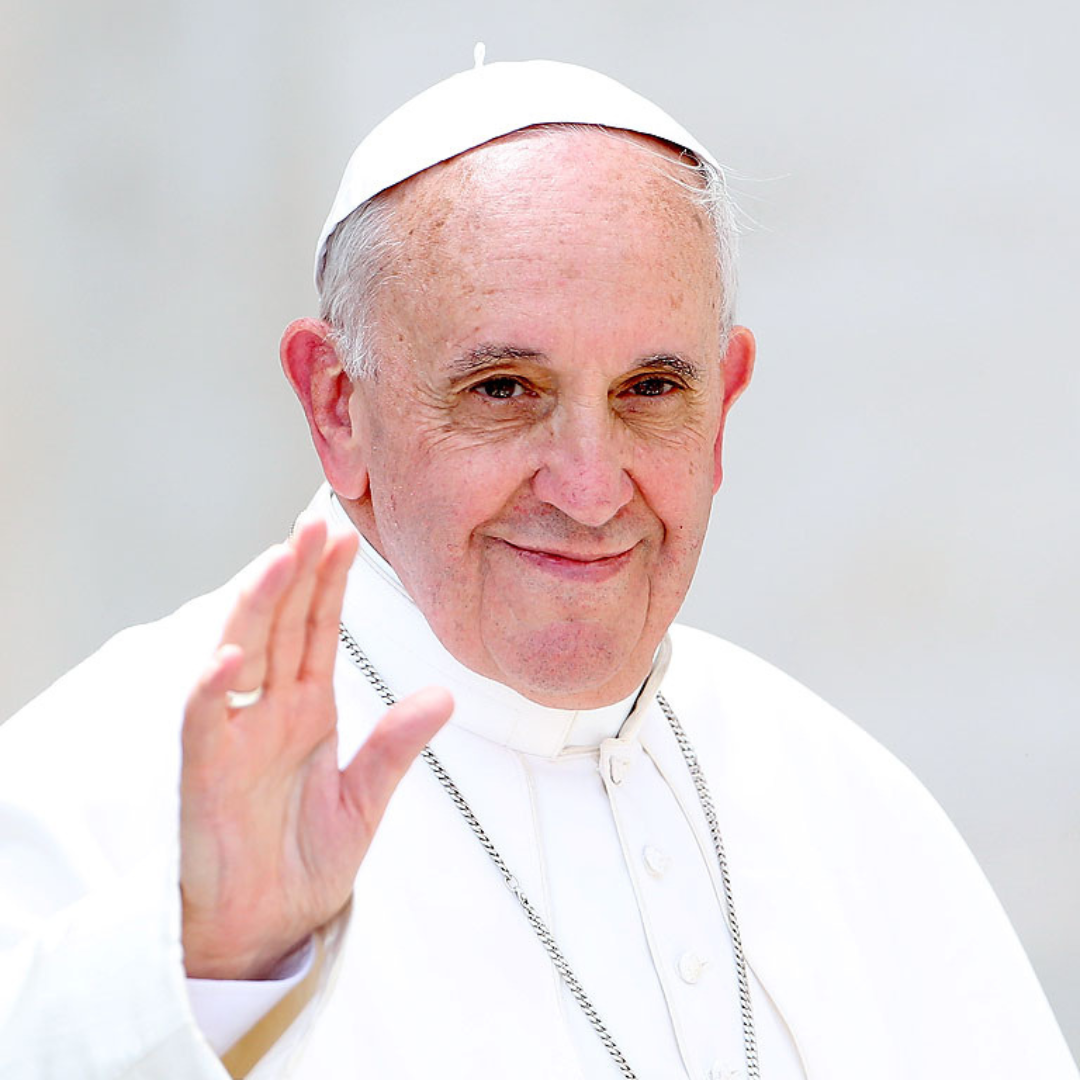
Gabriela – Why do you think the Holy Father appeals to young people to build a fairer and more fraternal economy and how can we contribute to implementing an economy that is more inclusive and that leaves no one out, especially people with disabilities?
Francesca – Who but young people can face this challenge? I believe they only, have enough strength and courage to look at things as they are and therefore still know how to be outraged to see things as they are when the values of justice are violated, and the very human dignity is not recognized by people. But at the same time, young people are courageous, they are able to dream, and they know how to set out to achieve things as they should be. Therefore, we really expect much from them. We believe in young people, and that is why we believe in The Economy of Francesco. And we are there, ready to embrace them. Just as that bending man of old, that lepper who was desiring the embrace of Francis. It is the most beautiful embrace we are looking forward to sharing.
Ana – We know that the Seraphic Institute will perform an art show during the event in September. Could you unveil a little bit of what it will be? What is it about and what can we expect?
Francesca – The kids worked a lot, even all the workers. You know, there are more than two hundred people working here, as well as many volunteers. They were busy writing a story dedicated to you, young people. It is about the dream of an economist who converts thanks to two special angels. I do not want to tell you more, but it is a dream we have of you, young people.

